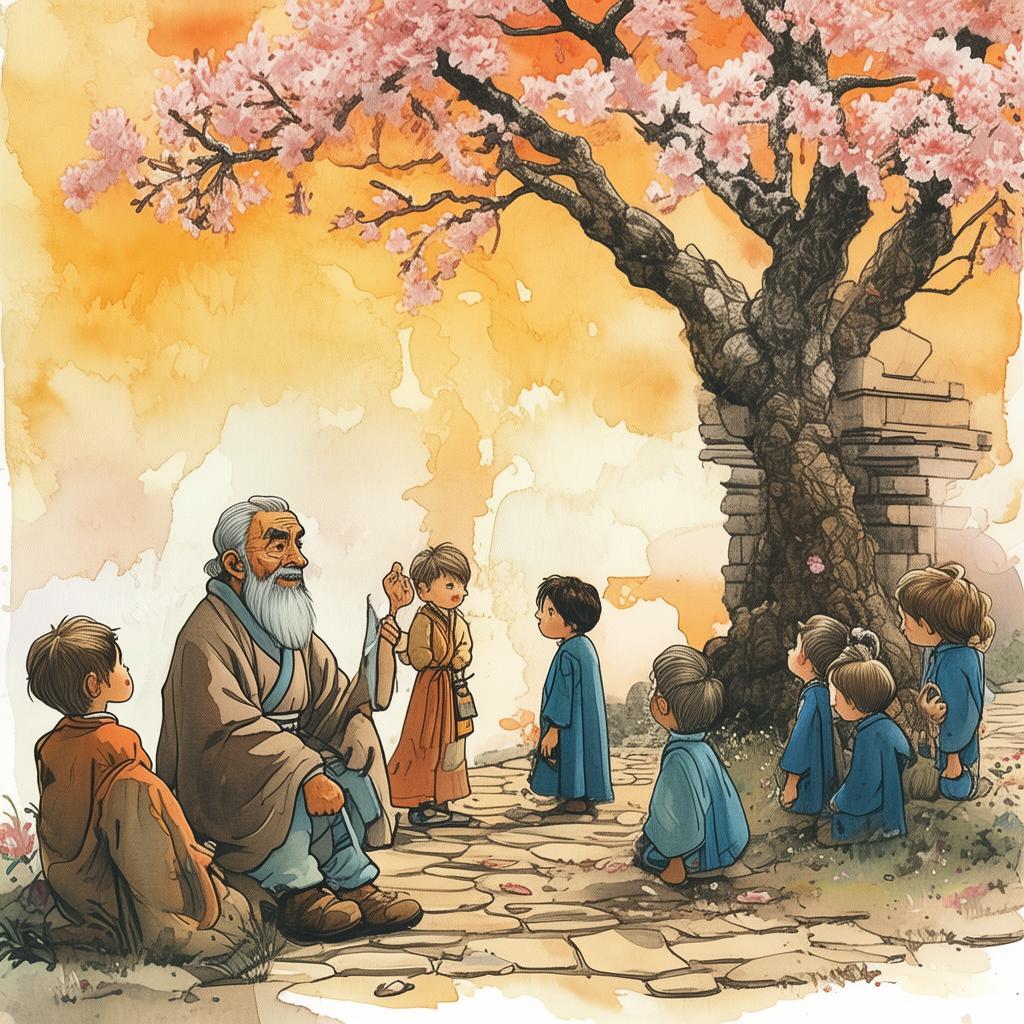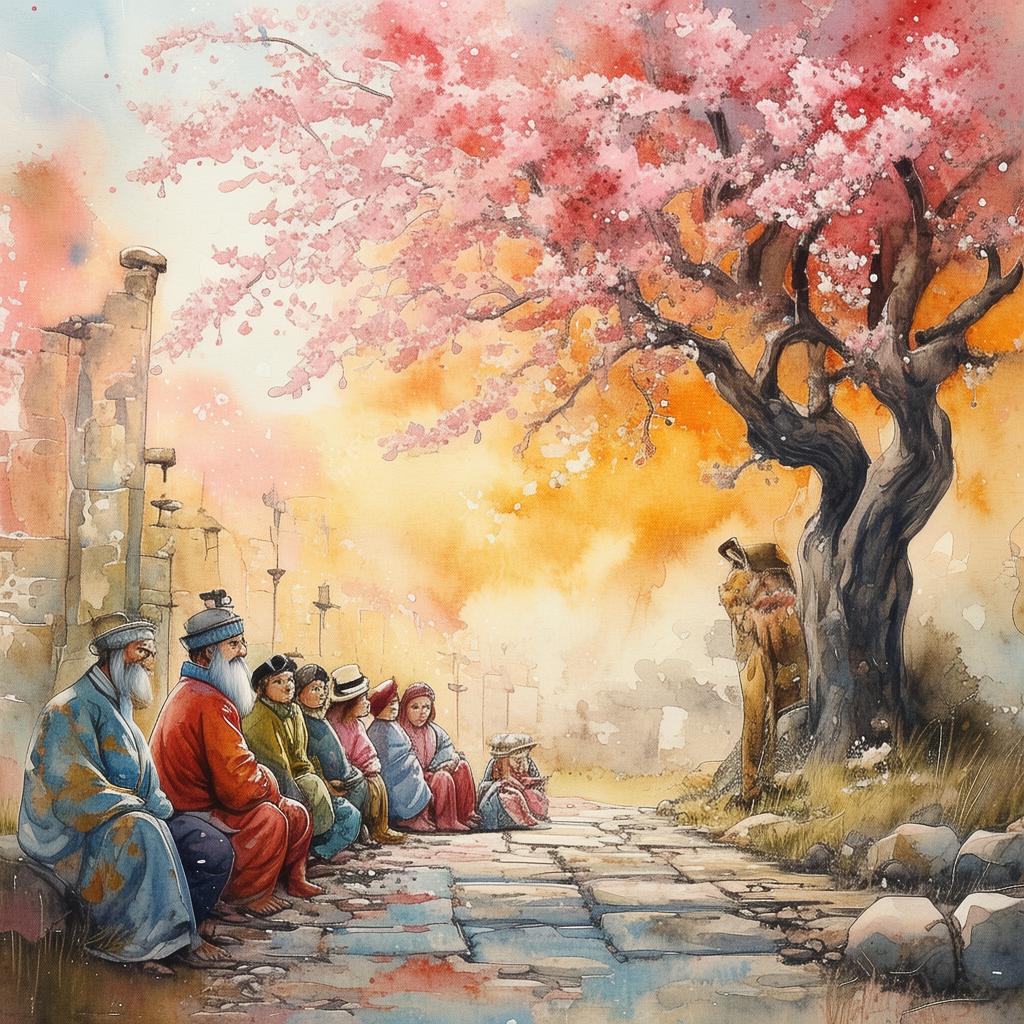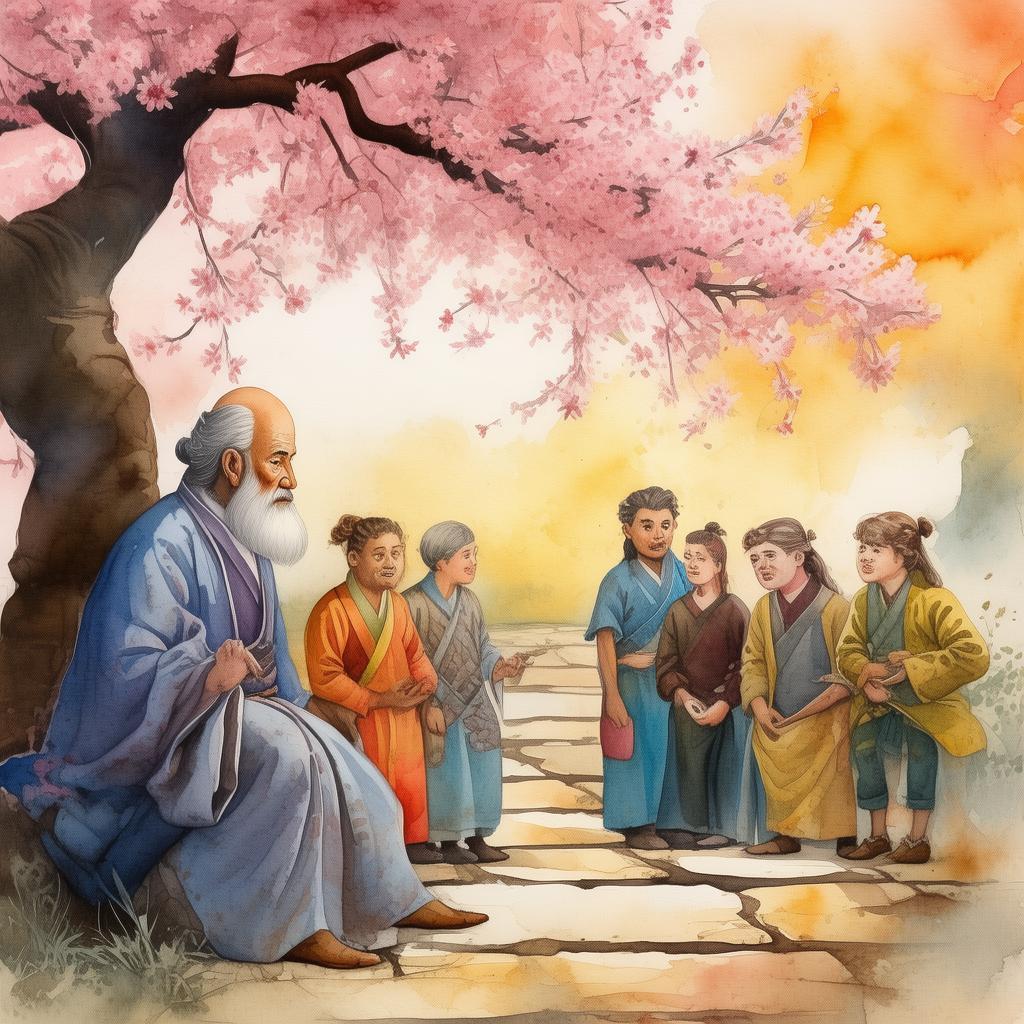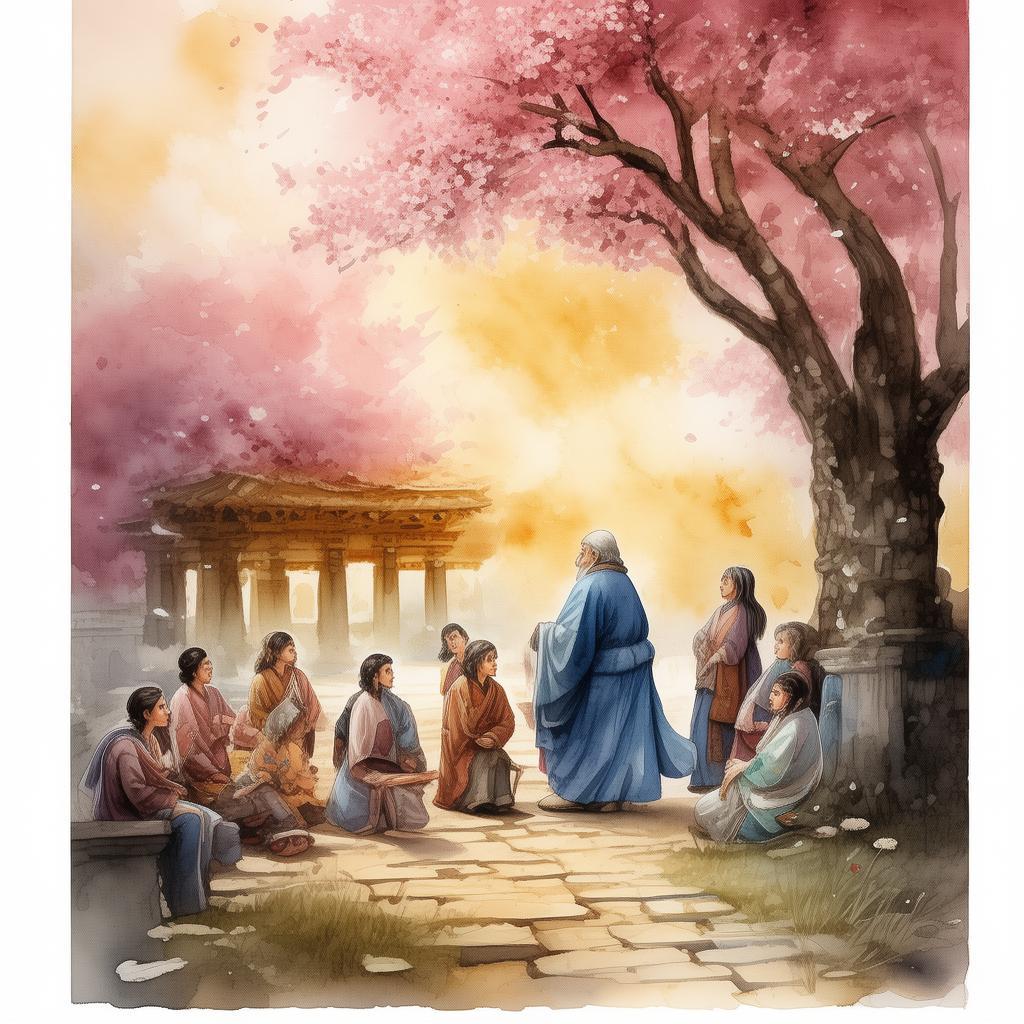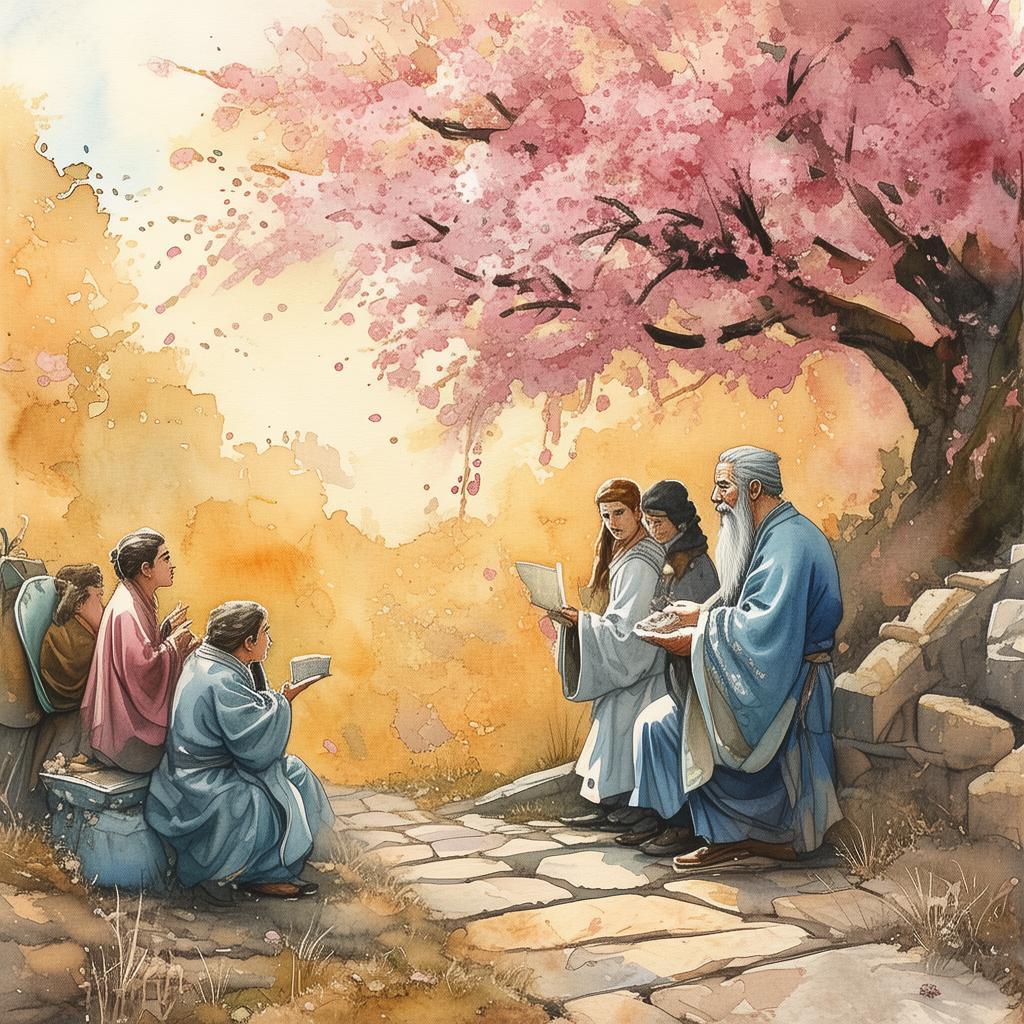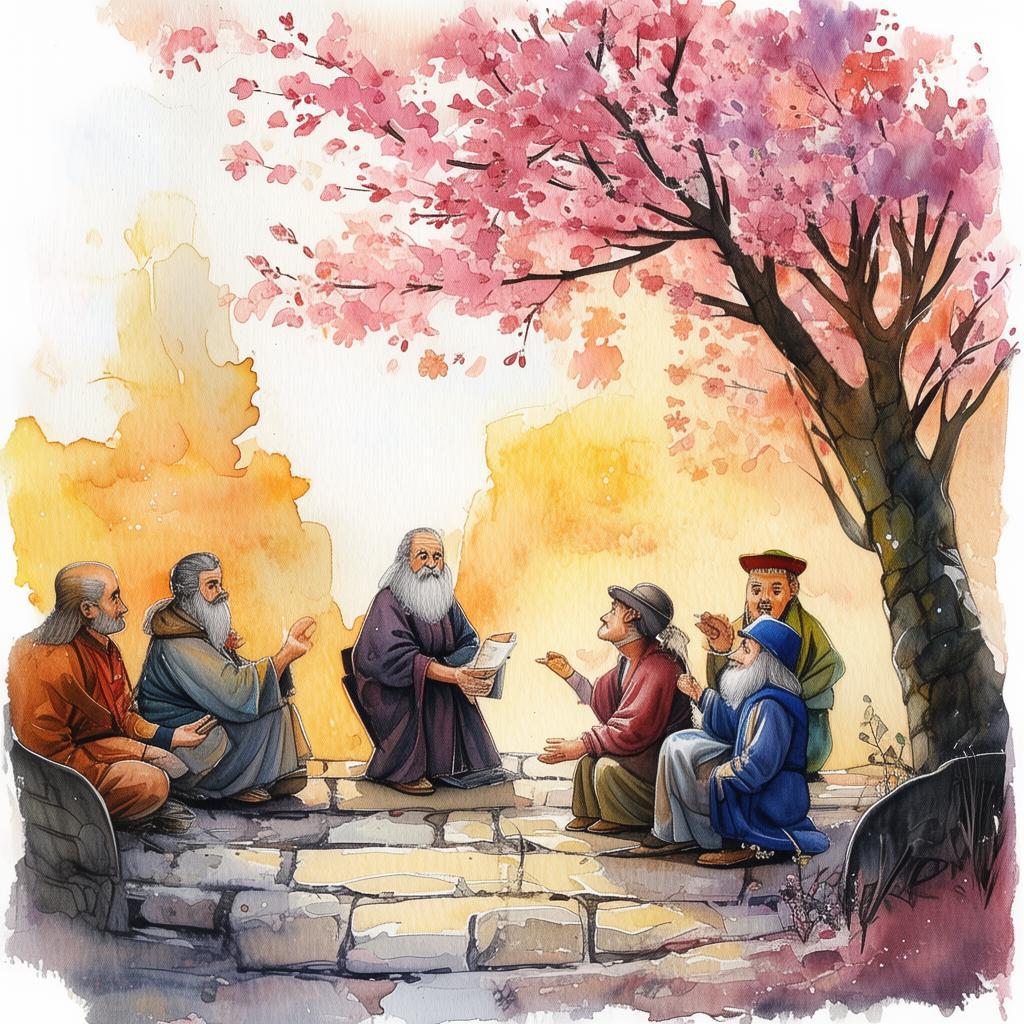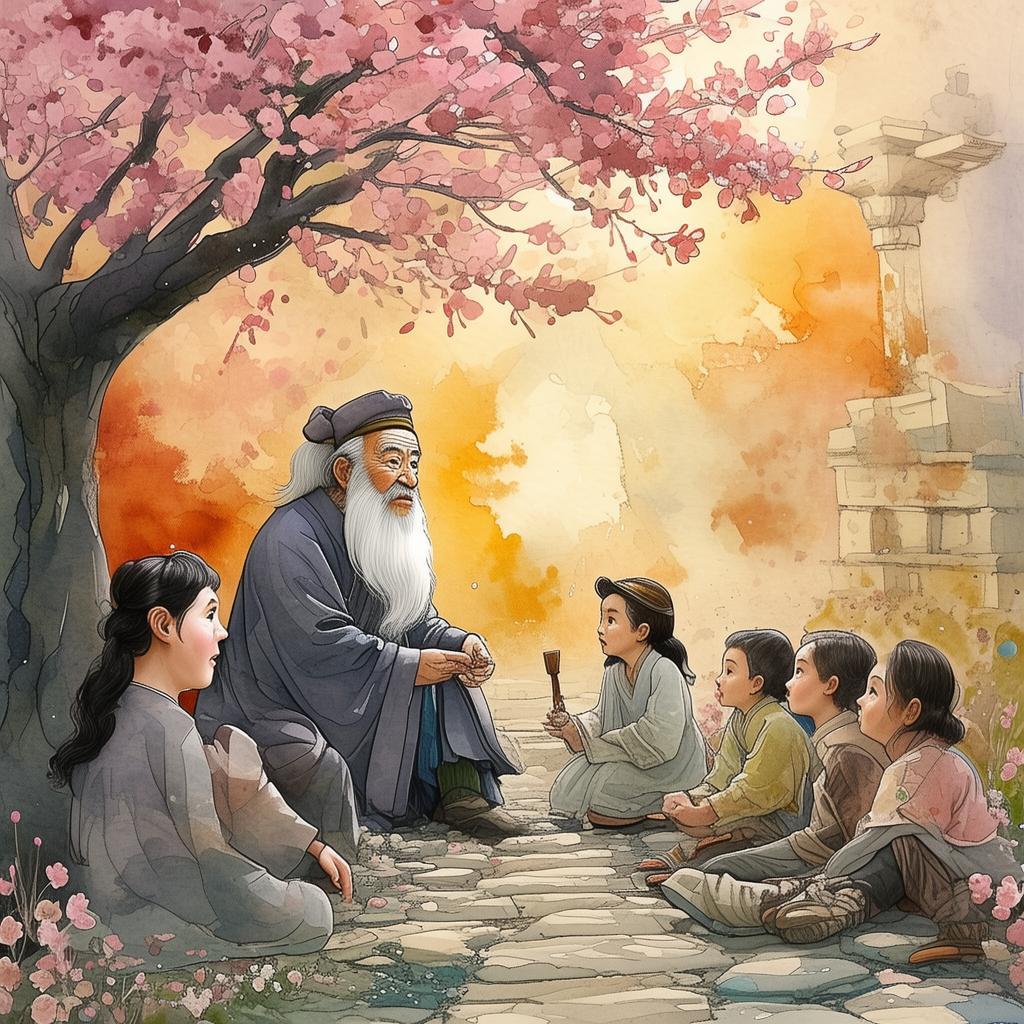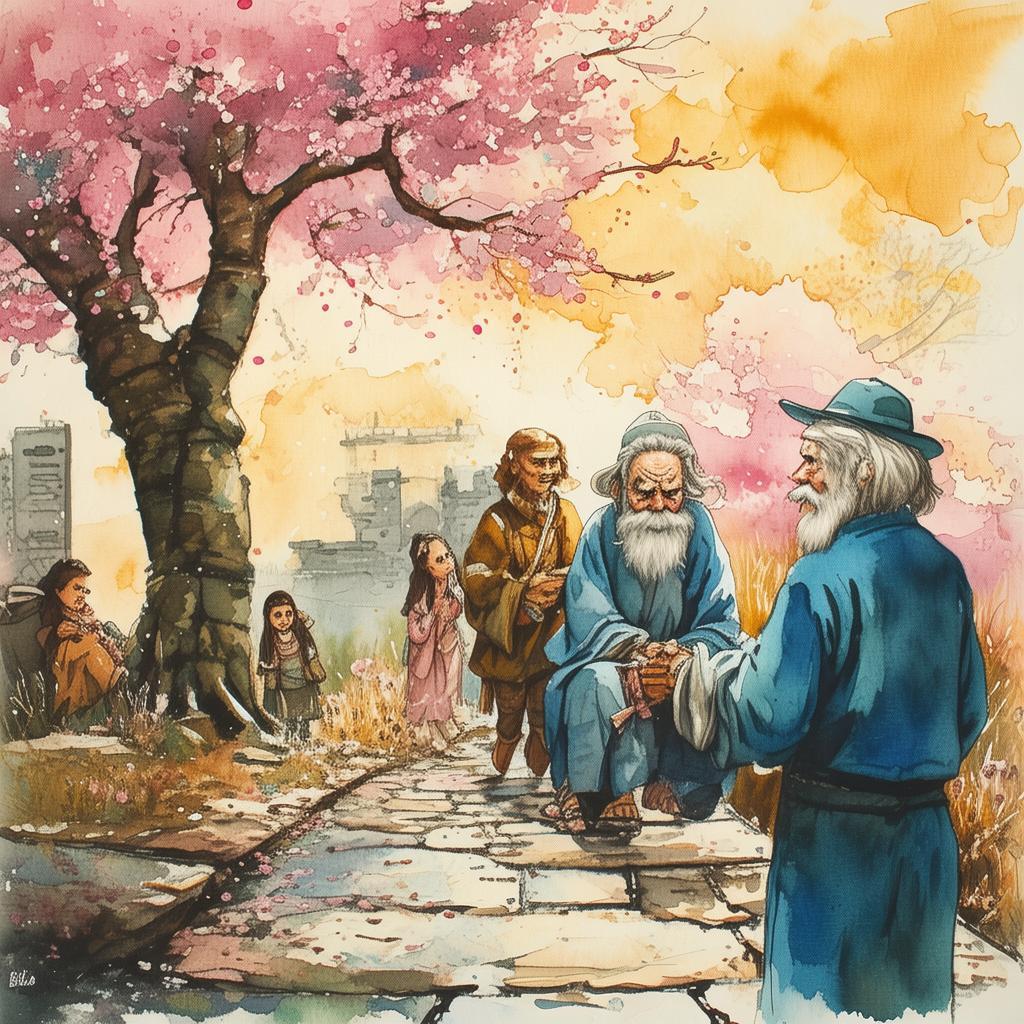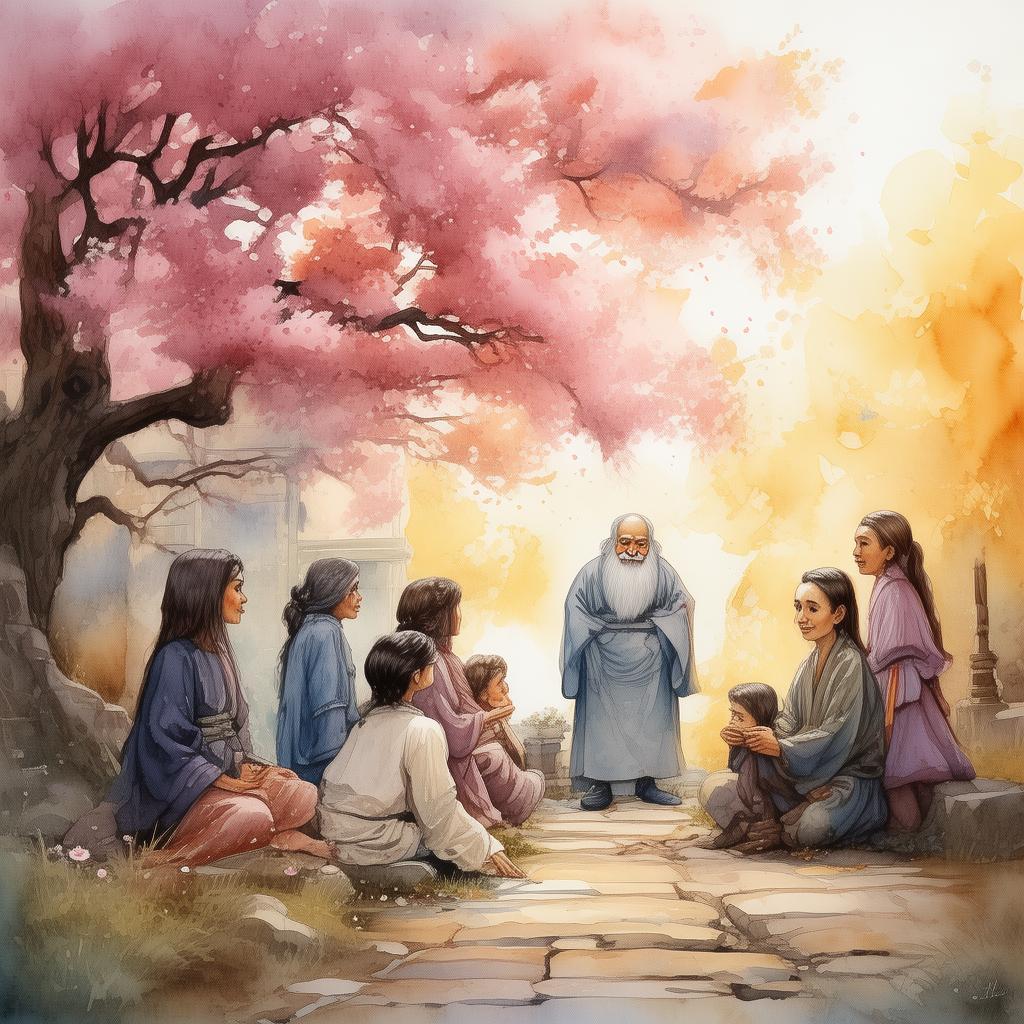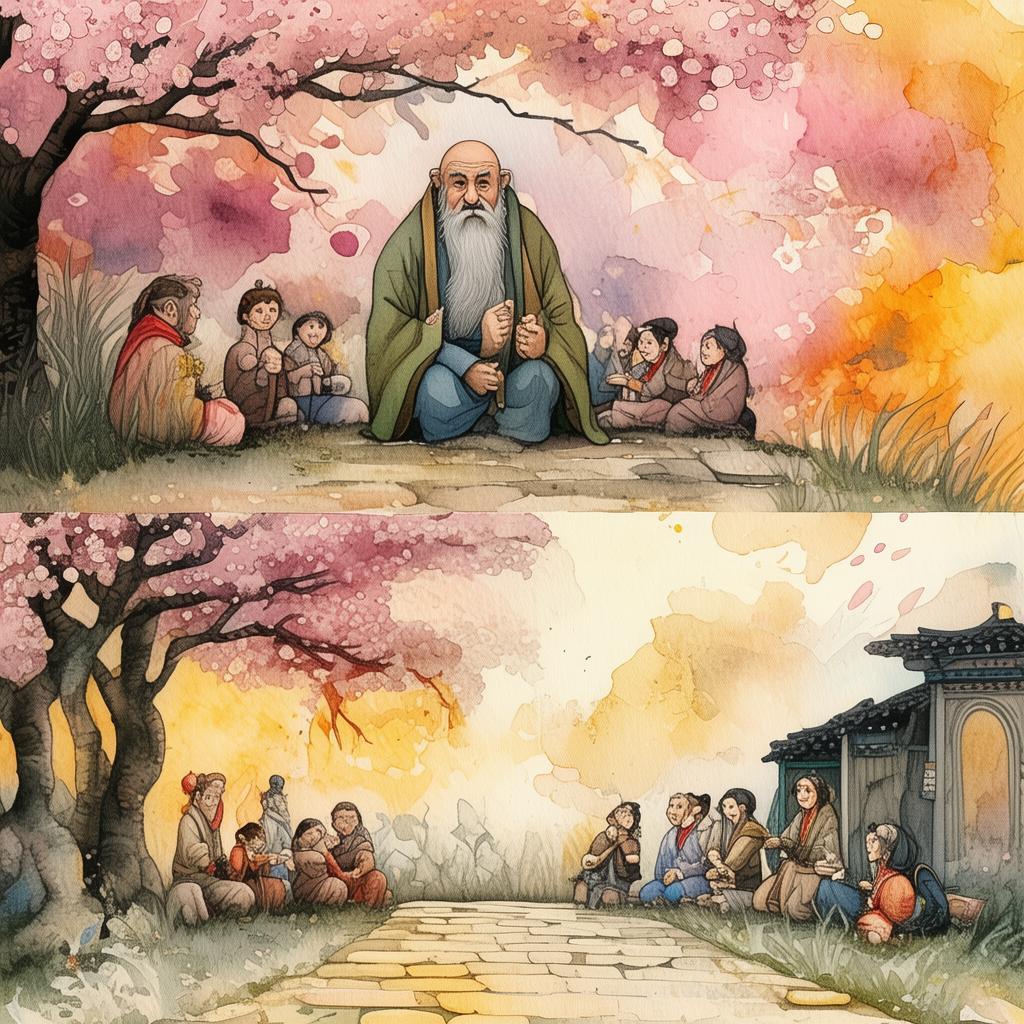Flourishing the Ancient Art: The Quest for the Secret Sauce
In the bustling heart of Shanghai, nestled between the towering skyscrapers and the winding alleys, there stood an unassuming restaurant known as "The Simplest Chef." Its name, a paradox in the world of gourmet dining, was a testament to the culinary philosophy of its enigmatic owner, Chef Li. Li was not just a chef; he was a guardian of the ancient culinary arts, a keeper of secrets passed down through generations.
One fateful day, a young chef named Ming walked through the restaurant's door, his eyes wide with a spark of curiosity. Ming had heard whispers of Chef Li's legendary "Secret Sauce," a concoction said to be the key to the ancient chef's unparalleled mastery of Chinese cuisine. Determined to learn the art of traditional cooking, Ming approached Chef Li with humility and respect.
Chef Li, with a twinkle in his eye, welcomed Ming. "You seek the Secret Sauce, do you?" he asked, his voice laced with a hint of mystery. Ming nodded eagerly, his heart pounding with anticipation.
"Then you must first understand the essence of the ancient art we practice," Chef Li began, his words carrying the weight of centuries. "It is not merely about the ingredients or the technique, but the spirit behind the dish. It is about the connection between the earth, the seasons, and the heart of the chef."
Ming listened intently, his mind racing to absorb every word. Chef Li spoke of the seasons and the way they dictated the flavors of the land. He spoke of the importance of simplicity and the power of natural ingredients. Ming realized that the quest for the Secret Sauce was not just about a recipe, but about a journey of self-discovery and understanding.
Days turned into weeks as Ming worked alongside Chef Li, learning the intricacies of traditional Chinese cooking. He watched as the chef handled ingredients with a grace that seemed to come from another world. Ming marveled at the way Chef Li could transform the simplest of ingredients into a feast of flavors.
One evening, as the sun dipped below the horizon, casting a golden glow over the city, Chef Li called Ming to his side. "Today, you have learned the basics," he said, his voice filled with pride. "Now, it is time for you to embark on the next part of your journey."
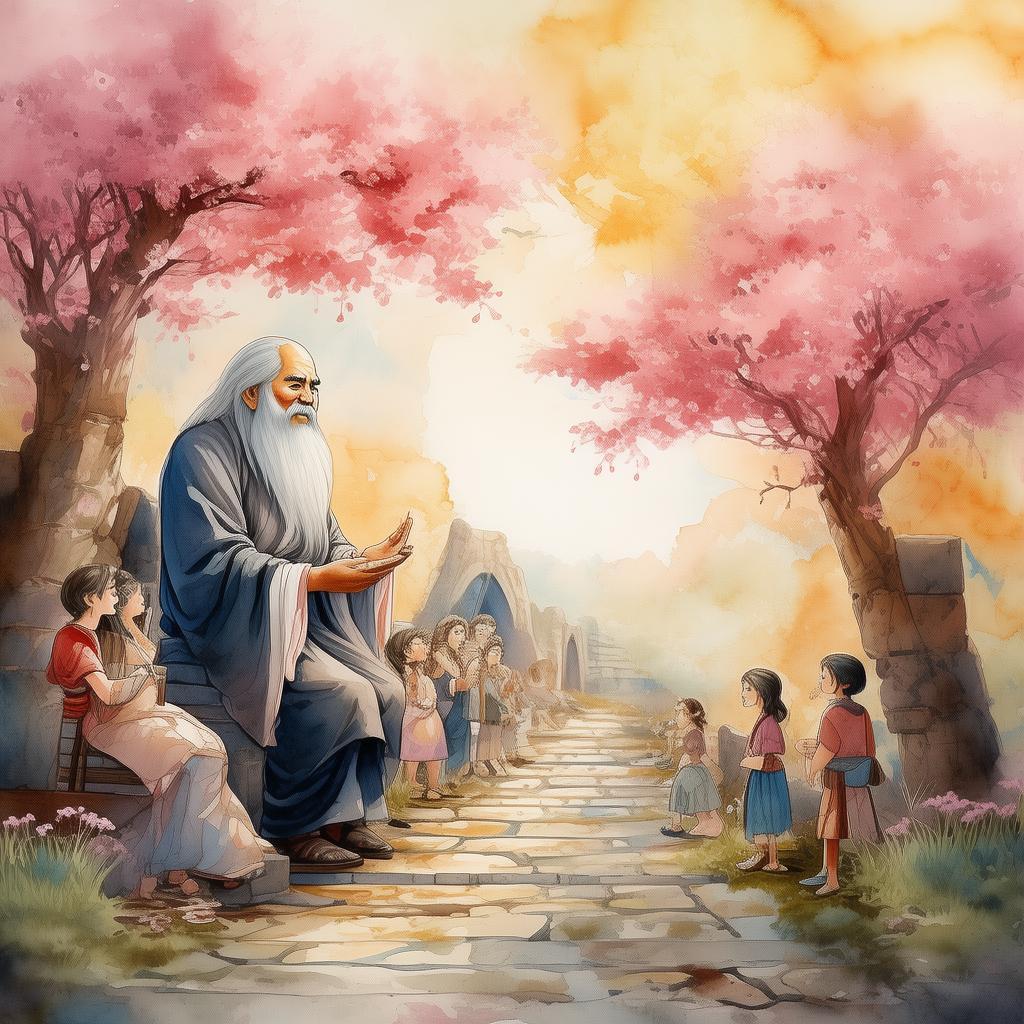
Ming followed Chef Li to the back of the kitchen, where an old, dusty book lay on a table. The book was filled with cryptic symbols and ancient recipes. "This," Chef Li said, "is the key to the Secret Sauce. But it is not just a recipe. It is a guide to the wisdom of the ancient chefs."
Ming opened the book, his eyes scanning the pages. He noticed a series of symbols that seemed to tell a story. The first symbol was a simple pot, representing the cooking process. The second was a seed, symbolizing the growth of ingredients. The third was a heart, signifying the chef's passion and dedication.
As Ming continued to read, he realized that the Secret Sauce was not a liquid, but a state of being. It was the harmony between the ingredients, the technique, and the chef's spirit. It was the essence of the ancient art of Chinese cuisine.
With newfound understanding, Ming returned to the kitchen. He began to cook with a newfound sense of purpose, his every move infused with the spirit of the ancient chefs. The flavors of his dishes changed, becoming richer, more complex, and deeply connected to the land and the seasons.
Word of Ming's culinary mastery spread quickly. People flocked to "The Simplest Chef" to taste the dishes that had been touched by the ancient wisdom. Ming's journey had not only brought him closer to the Secret Sauce but had also rekindled the flame of tradition in the hearts of many.
Chef Li watched with a smile as Ming flourished, his legacy carried forward by a new generation of chefs. The quest for the Secret Sauce had not ended with Ming; it had just begun. And in the hearts of those who sought to understand the ancient art, the spirit of the Secret Sauce would forever thrive.
In the end, the true Secret Sauce was not a recipe, but a reminder of the enduring power of tradition, the importance of connection to the earth, and the infinite possibilities that lie in the heart of every chef.
✨ Original Statement ✨
All articles published on this website (including but not limited to text, images, videos, and other content) are original or authorized for reposting and are protected by relevant laws. Without the explicit written permission of this website, no individual or organization may copy, modify, repost, or use the content for commercial purposes.
If you need to quote or cooperate, please contact this site for authorization. We reserve the right to pursue legal responsibility for any unauthorized use.
Hereby declared.
